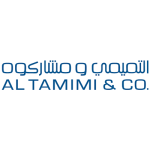Qatar has the third largest known gas reserves in the world, as well as significant oil reserves. It is also the world's leading producer of liquefied natural gas and liquid fuels using gas-to-liquids technology. With one of the highest GDP per capita figures in the world, a high growth rate and strong government finances, Qatar has attracted businesses and professionals from around the globe. Interest in the country has also increased after it was awarded hosting rights for the 2022 FIFA World Cup, as well as other marquee sporting events.
At the same time, Qatar has been developing its legislative framework.
Foreign investment
In 2000, Qatar issued Law No. 13 concerning foreign capital investment in economic activities (the Foreign Investment Law). This provides the current legislative framework for foreigners wishing to establish business enterprises and other investments in Qatar. It allows foreigners to directly invest in almost all sectors of the economy through foreign ownership of 49% of a company's capital (exceptions to this include banks and insurance companies). In addition, it permits foreign investors to own up to 100% of businesses in the agriculture, health, education, tourism, natural resources, energy and mining sectors.
Subsequent amendments to the Foreign Investment Law have allowed 100% foreign ownership in the areas of: information technology (IT), technical and consultancy services, entertainment sport and cultural services, and distribution services.
The QFC
The Qatar Financial Centre (QFC) was established in 2005. This is a business and financial centre located in Doha, created as an onshore jurisdiction separate from the state of Qatar. It was established to enhance the growth and diversification of Qatar's economy, and to provide an attractive platform for firms to do business in Qatar and in the wider region.
It was set up to offer domestic and international firms an opportunity to establish and provide a broad range of financial services relating to the banking, asset management and insurance businesses. The QFC has subsequently expanded the scope of the non-regulated activities that can be undertaken through the QFC. Changes include broadening the definition of "professional services" to include any business which provides qualified business-to-business services such as management consulting, IT services, media, events management, engineering and environmental consulting. A wider range of structures for investing and holding assets, or managing business interests and operations, can also now be accommodated.
The QFC offers its own legal, regulatory, tax and business infrastructure. This allows 100% foreign ownership, unlimited repatriation of profits and a competitive rate of 10% corporate tax on locally-sourced profits. Since the QFC is not a separate geographical zone, all entities in the QFC operate on an onshore basis.
E-commerce
In 2010 Qatar passed its first comprehensive e-commerce law. This aims to provide a clear legal framework to address matters such as e-signatures, e-documents and authentication. It covers e-commerce transactions in Qatar, including e-government services.
Cyber-crime and anti-money laundering
In relation to crimes involving businesses, in 2010 Qatar established Law No. 4 on Combating Money Laundering and Terrorism Financing. This introduces a robust identification and reporting regime in line with international standards. In 2014 Law No. 14 introduced the Cybercrimes Protection Law in an effort to increase awareness of, and allow for a more stringent regime for combating, cyber-crime. It is intended to safeguard the country's technological infrastructure and strengthen cyber security.
Tala Shomar

